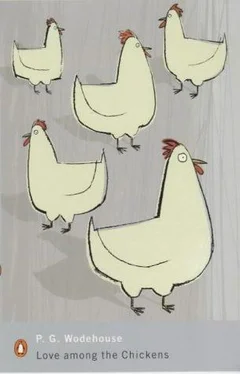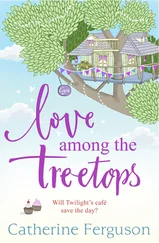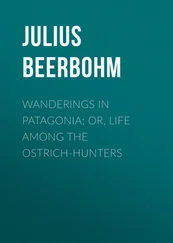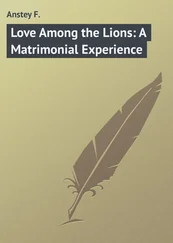Pelham Wodehouse - Love Among the Chickens
Здесь есть возможность читать онлайн «Pelham Wodehouse - Love Among the Chickens» весь текст электронной книги совершенно бесплатно (целиком полную версию без сокращений). В некоторых случаях можно слушать аудио, скачать через торрент в формате fb2 и присутствует краткое содержание. ISBN: , Издательство: Wildside Press; (March 2004), Жанр: Классическая проза, Юмористическая проза, на английском языке. Описание произведения, (предисловие) а так же отзывы посетителей доступны на портале библиотеки ЛибКат.
- Название:Love Among the Chickens
- Автор:
- Издательство:Wildside Press; (March 2004)
- Жанр:
- Год:неизвестен
- ISBN:0809592762
- Рейтинг книги:5 / 5. Голосов: 1
-
Избранное:Добавить в избранное
- Отзывы:
-
Ваша оценка:
- 100
- 1
- 2
- 3
- 4
- 5
Love Among the Chickens: краткое содержание, описание и аннотация
Предлагаем к чтению аннотацию, описание, краткое содержание или предисловие (зависит от того, что написал сам автор книги «Love Among the Chickens»). Если вы не нашли необходимую информацию о книге — напишите в комментариях, мы постараемся отыскать её.
Love Among the Chickens — читать онлайн бесплатно полную книгу (весь текст) целиком
Ниже представлен текст книги, разбитый по страницам. Система сохранения места последней прочитанной страницы, позволяет с удобством читать онлайн бесплатно книгу «Love Among the Chickens», без необходимости каждый раз заново искать на чём Вы остановились. Поставьте закладку, и сможете в любой момент перейти на страницу, на которой закончили чтение.
Интервал:
Закладка:
Or again. There was a bicycle and photograph shop near the school. He went into this one day, and his roving eye fell on a tandem bicycle. He did not want a tandem bicycle, but that influenced him not at all. He ordered it provisionally. He also ordered an enlarging camera, a kodak, and a magic lantern. The order was booked, and the goods were to be delivered when he had made up his mind concerning them. After a week the shopman sent round to ask if there were any further particulars which Mr. Ukridge would like to learn before definitely ordering them. Mr. Ukridge sent back word that he was considering the matter, and that in the meantime would he be so good as to let him have that little clockwork man in his window, which walked when wound up? Having got this, and not paid for it, Ukridge thought that he had done handsomely by the bicycle and photograph man, and that things were square between them. The latter met him a few days afterwards, and expostulated plaintively. Ukridge explained. “My good man,” he said, “you know, I really think we need say no more about the matter. Really, you’re come out of it very well. Now, look here, which would you rather be owed for? A clockwork man—which is broken, and you can have it back—or a tandem bicycle, an enlarging camera, a kodak, and a magic-lantern? What?” His reasoning was too subtle for the uneducated mind. The man retired, puzzled, and unpaid, and Ukridge kept the clockwork toy.
Chapter 22.
The Storm Breaks
Rather to my surprise, the next morning passed off uneventfully. Our knocker advertised no dun. Our lawn remained untrodden by hob-nailed boots. By lunch-time I had come to the conclusion that the expected Trouble would not occur that day, and I felt that I might well leave my post for the afternoon, while I went to the professor’s to pay my respects. The professor was out when I arrived. Phyllis was in, and it was not till the evening that I started for the farm again.
As I approached, the sound of voices smote my ears.
I stopped. I could hear Beale speaking. Then came the rich notes of Vickers, the butcher. Then Beale again. Then Dawlish the grocer. Then a chorus.
The storm had burst, and in my absence.
I blushed for myself. I was in command, and I had deserted the fort in time of need. What must the faithful Hired Man be thinking of me? Probably he placed me, as he had placed Ukridge, in the ragged ranks of those who have Shot the Moon.
Fortunately, having just come from the professor’s I was in the costume which of all my wardrobe was most calculated to impress. To a casual observer I should probably suggest wealth and respectability. I stopped for a moment to cool myself, for, as is my habit when pleased with life, I had been walking fast; then opened the gate and strode in, trying to look as opulent as possible.
It was an animated scene that met my eyes. In the middle of the lawn stood the devoted Beale, a little more flushed than I had seen him hitherto, parleying with a burly and excited young man without a coat. Grouped round the pair were some dozen men, young, middle-aged, and old, all talking their hardest. I could distinguish nothing of what they were saying. I noticed that Beale’s left cheekbone was a little discoloured, and there was a hard, dogged expression on his face. He, too, was in his shirt-sleeves.
My entry created no sensation. Nobody, apparently, had heard the latch click, and nobody had caught sight of me. Their eyes were fixed on the young man and Beale. I stood at the gate, and watched them.
There seemed to have been trouble already. Looking more closely, I perceived sitting on the grass apart a second young man. His face was obscured by a dirty pocket handkerchief, with which he dabbed tenderly at his features. Every now and then the shirt-sleeved young man flung his hand towards him with an indignant gesture, talking hard the while. It did not need a preternaturally keen observer to deduce what had happened. Beale must have fallen out with the young man who was sitting on the grass and smitten him; and now his friend had taken up the quarrel
“Now this,” I said to myself, “is rather interesting. Here, in this one farm, we have the only three known methods of dealing with duns. Beale is evidently an exponent of the violent method. Ukridge is an apostle of Evasion. I shall try Conciliation. I wonder which of us will be the most successful.”
Meanwhile, not to spoil Beale’s efforts by allowing him too little scope for experiment, I refrained from making my presence known, and continued to stand by the gate, an interested spectator.
Things were evidently moving now. The young man’s gestures became more vigorous. The dogged look on Beale’s face deepened. The comments of the Ring increased in point and pungency.
“What did you hit him for, then?”
The question was put, always the same words and with the same air of quiet triumph, at intervals of thirty seconds by a little man in a snuff-coloured suit with a purple tie. Nobody ever answered him, or appeared to listen to him, but he seemed each time to think that he had clinched the matter and cornered his opponent.
Other voices chimed in.
“You hit him, Charlie. Go on. You hit him.”
“We’ll have the law.”
“Go on, Charlie.”
Flushed with the favour of the many-headed, Charlie now proceeded from threats to action. His right fist swung round suddenly. But Beale was on the alert. He ducked sharply, and the next moment Charlie was sitting on the ground beside his fallen friend. A hush fell on the Ring, and the little man in the purple tie was left repeating his formula without support.
I advanced. It seemed to me that the time had come to be conciliatory. Charlie was struggling to his feet, obviously anxious for a second round, and Beale was getting into position once more. In another five minutes conciliation would be out of the question.
“What’s all this?” I said.
I may mention here that I do not propose to inflict dialect upon the reader. If he had borne with my narrative thus far, I look on him as a friend, and feel that he deserves consideration. I may not have brought out the fact with sufficient emphasis in the foregoing pages, but nevertheless I protest that I have a conscience. Not so much as a “thiccy” shall he find.
My advent caused a stir. Excited men left Beale, and rallied round me. Charlie, rising to his feet, found himself dethroned from his position of Man of the Moment, and stood blinking at the setting sun and opening and shutting his mouth. There was a buzz of conversation.
“Don’t all speak at once, please,” I said. “I can’t possibly follow what you say. Perhaps you will tell me what you want?”
I singled out a short, stout man in grey. He wore the largest whiskers ever seen on human face.
“It’s like this, sir. We all of us want to know where we are.”
“I can tell you that,” I said, “you’re on our lawn, and I should be much obliged if you would stop digging your heels into it.”
This was not, I suppose, Conciliation in the strictest and best sense of the word; but the thing had to be said. It is the duty of every good citizen to do his best to score off men with whiskers.
“You don’t understand me, sir,” he said excitedly. “When I said we didn’t know where we were, it was a manner of speaking. We want to know how we stand.”
“On your heels,” I replied gently, “as I pointed out before.”
“I am Brass, sir, of Axminster. My account with Mr. Ukridge is ten pounds eight shillings and fourpence. I want to know—”
The whole strength of the company now joined in.
“You know me, Mr. Garnet. Appleby, in the High—” (Voice lost in the general roar).
“ … and eightpence.”
Читать дальшеИнтервал:
Закладка:
Похожие книги на «Love Among the Chickens»
Представляем Вашему вниманию похожие книги на «Love Among the Chickens» списком для выбора. Мы отобрали схожую по названию и смыслу литературу в надежде предоставить читателям больше вариантов отыскать новые, интересные, ещё непрочитанные произведения.
Обсуждение, отзывы о книге «Love Among the Chickens» и просто собственные мнения читателей. Оставьте ваши комментарии, напишите, что Вы думаете о произведении, его смысле или главных героях. Укажите что конкретно понравилось, а что нет, и почему Вы так считаете.





